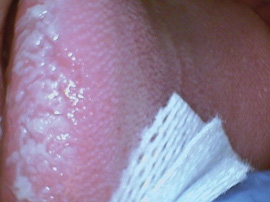We know that language does not chew; however, it is able to bite. Sometimes with words, sometimes with tone, sometimes with loose phrases that go from ear to ear and always from back. For those who lack muscle in the heart, there is an extra in language, always so agile, always willing to reveal their arts.
It is curious to know how, while the word is the language of the brain and the result of our evolution as a species, we can still use it to harm others. This field, as fine and subtle as our emotional world is, has not but took the reins to learn to be more empathetic. Closest. People who can live together and not erect fences in the face of rumors, verbal attacks or contempt.
“The tongue is like a sharp knife: it kills without bleeding. -Bouddha-
One thing we all know is that the tongue is able to hurt with the same intensity as sticks and stones, it is possible that humans have evolved markedly, no doubt, now we are sophisticated entities, more skillful, more capable and designed to survive in a context as mutant and demanding as that of our ancestors, however, there are several aspects that force us to think , to make a small gesture of conscience.
Years ago, we jumped as a species and paved the way for the digital age. However, in addition to further strengthening the connection between humans and their peers, new technologies often do the exact opposite.
Does language in this scenario find a subtle anonymity to delight, exercise and provoke through words?140 characters is sufficient. Injuries that can have serious and diffusely responsible consequences.
Why did we bite with our tongues?To the point of destroying the lives of others?
There are times when anger consumes us. In which the tension of the moment makes us say the least appropriate words. The one who breaks all the pieces that make up the heart of the person in front of us. Because as they say, it is always better to choose silence in a moment of tension than to mourn 100 years of repentance afterwards.
With that, we want to remember that everyone, absolutely everyone, has that power. Damage the tongue. Cross the word, but when do we say?Harm, we don’t just mean a simple metaphor, because the emotional pain caused by language is real, authentic, and can be seen through neuroimaging techniques.
At the University of Los Angeles, the Department of Neurology conducted interesting research that led to the discovery of several phenomena. Words full of contempt, as well as criticism or rumors, activate in the person what is called a “neural network of social rejection”. .
Brain activity changes and we are suspended in a state of “disconnection,” an emotionality that ranges from anger to depression.
Similarly, another aspect that has been discovered is that verbal aggression has deeper and longer lasting effects than physical violence, it is an impact that can even affect a child’s development, in fact factors such as bullying or verbal abuse experienced by many teens in school are related to brain structures related to memory and emotions.
We know that language hurts, however, few remedies are as restorative as the word wise, such as the voice it wraps, the comforting gaze, the listening ear, and the language that knows how to connect the heart with its fellowmen. Is it so difficult to implement these attitudes?
Language, after all, is just an instrument of the brain; if we let him act alone, it will be crazy to give him a voice; ignorance to offer intonation and our most primitive instincts poison him to cause him harm.
It’s not worth it. Before speaking or writing on social media, be careful and observe, be careful, because sometimes silence will be better than any word you later regret.

